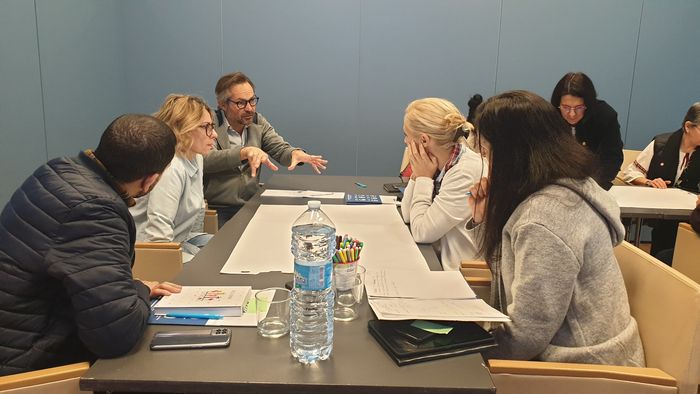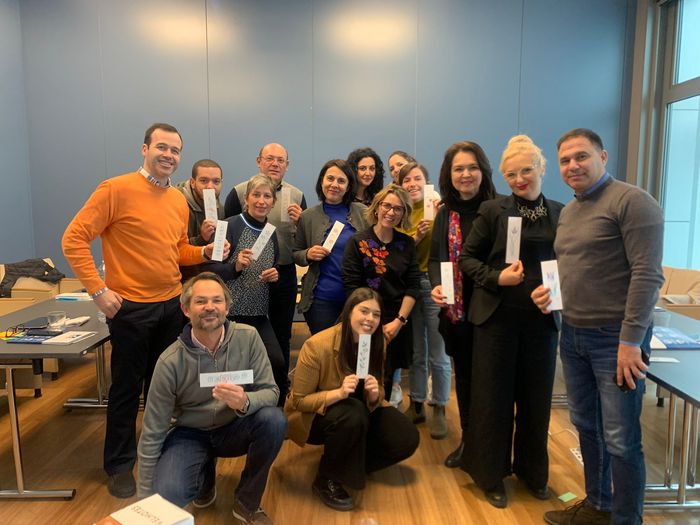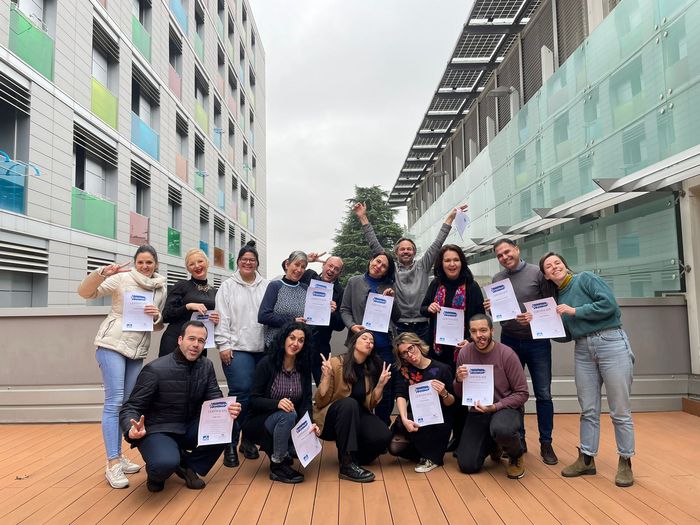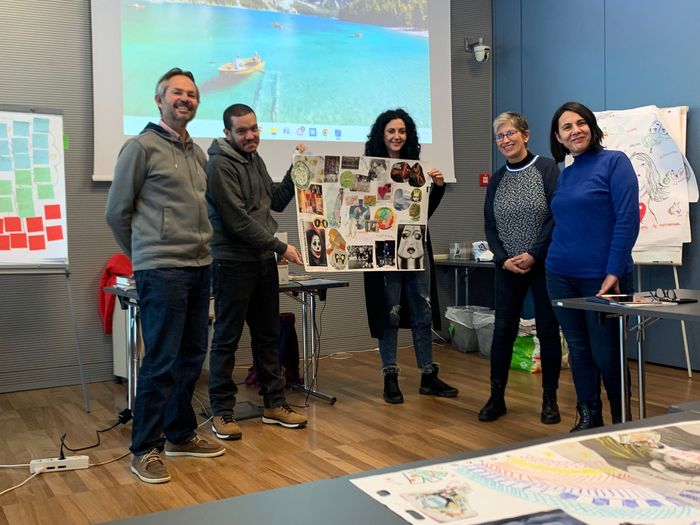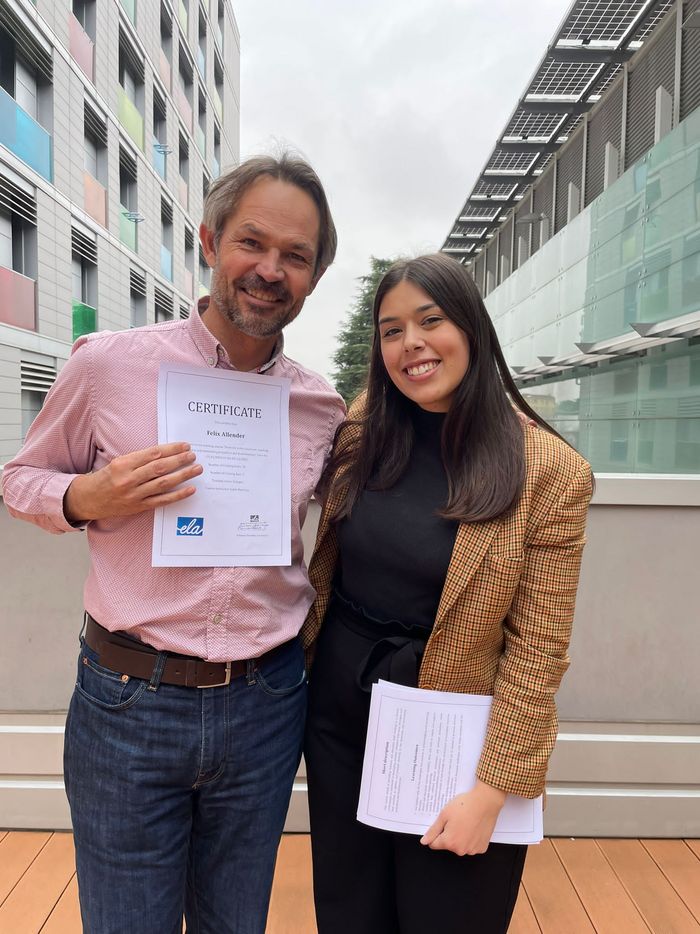The Magic of Diversity in the Classroom and in Society
The new edition of the course “Diversity in the classroom: teaching tolerance and overcoming prejudices and discrimination” took place in Bologna from 27/11/2022 to 03/12/2022. The participants came from all across Europe, with teachers from Portugal, Croatia, Romania, Serbia, Spain, the Netherlands and M. Félix Allender from Etablissement secondaire de Nyon-Marens in Switzerland.
Concept of identity
The first key step of the course was to explore the concept of identity. In this part, the teachers carried out a hands-on and visual activity on how participants see their personalities from the outside and on how they express their own identities. The participants reflected on the difference between their exterior appearance and their own deep personal characteristics and values. Next, we talked about how our identities can affect our perception of the world and of others.
Identity images
One of the subjects that we need to cover in an international course is undoubtedly identity images. We talked about the rituals, relationships and restrictions of each individual in our course, which included participants from many different countries. We discussed the impact of the country they live in, their personalities, and their environment on these 3 elements. In this discussion, we focused on making connections between identity images and diversity.
Concept of stereotypes
It is a known fact that we cannot immerse ourselves in the concept of diversity without mentioning the concept of stereotypes. We discussed how we create stereotypes, the effect the environment on it, and how these stereotypes affect our lives in a good or bad way. We held an agree-disagree activity to see how stereotypes shape our lives and how attached we are to these stereotypes.
Discrimination and privilege
Moreover, we touched a really sensitive topic: discrimination and privilege. In this section, we reflected and discussed about how privileged we are and how it can impact our lives positively or negatively. We also played an activity in which the participants experimented with working in a team that had different characteristics. What we wanted the participants to focus on in this activity was that despite all the differences, everyone could come together and overcome a problem, or a task. Thus, we saw how it’s possible to use our privileges to create unity and effective teamwork.
Empathy and conflict management
The last but not least important point of the week was empathy and conflict management. Being able to empathize gives us a lot: it strengthens our communication and interpersonal relations and improves our helping and sharing skills. In addition, our social development, respect for differences, and increasing tolerance are possible with empathy.
After all, it was a bright week full of new knowledge, diversity, empathy, new experiences and new people, practice, deep conversations and thoughts, ideas and emotions.
Discover more about this course in: https://www.erasmustrainingcourses.com/teaching-diversity.html
Isabel Martinez
Teacher training officer
ELA | Erasmus Learning Academy
